The US and Russia are having a heated argument at the United Nations, North Korean workers are on strike in China, Pakistani lawmakers are sworn in amid chaos, and the Chinese Foreign Minister is about to visit Australia… are some of the notable international news of the past 24 hours.
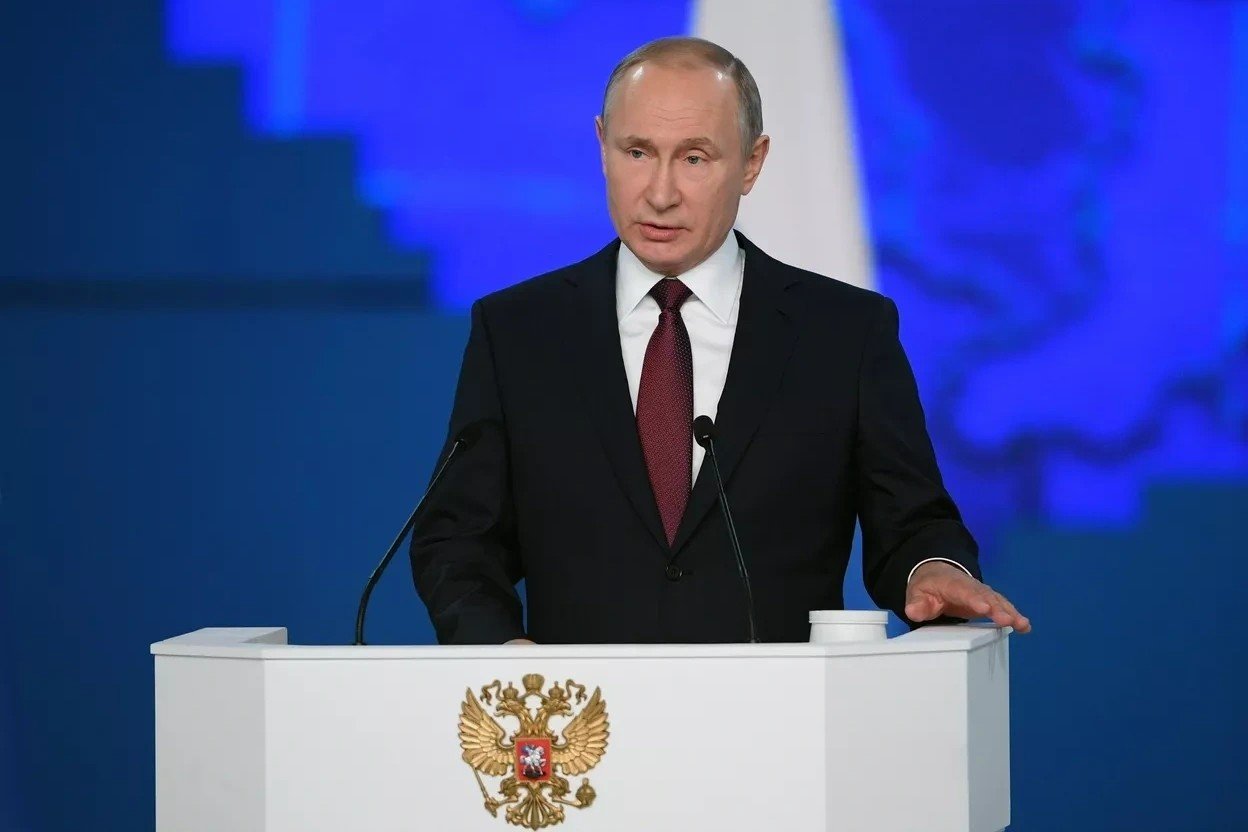 |
| Russian President Vladimir Putin delivers his state of the nation address on February 29. (Source: Sputnik) |
The World & Vietnam Newspaper highlights some of the day's international news highlights.
Russia-Ukraine
*Ukraine announced that it shot down 3 more Russian fighter jets: On February 29, the Ukrainian military said it had shot down 3 more Russian Su-34 bombers.
On the Telegram page, Military Commander Oleksandr Syrsky said that after successful combat operations, on the night of February 29, two more Russian Su-34 aircraft were destroyed in the Avdiivka and Mariupol areas.
Avdiivka in eastern Ukraine was taken by Russian forces this month after a protracted battle. Russia took full control of the southeastern port city of Mariupol in May 2022.
Last week, the Ukrainian military said it had shot down six Russian fighter jets in three days. (Reuters)
*President Putin warns of the risk of nuclear war: In his February 29th federal message, President Vladimir Putin praised the Russian military forces carrying out missions in Ukraine as "brave" warriors who will never falter.
In his closing remarks, President Putin said: “I saw these brave people, even very young ones, and without any exaggeration, I can say that my heart was filled with pride. They will not falter, will not fail and will not betray.”
President Putin also warned of a risk of nuclear war if the West escalates the conflict in Ukraine. He said: “They have announced the possibility of sending Western military forces to Ukraine… Everything that the West has come up with entails a real threat of a conflict with the use of nuclear weapons, and therefore of the destruction of civilization,” the Kremlin leader stressed. (TASS)
*Russia shot down 48 drones near Kupyansk: Local media reported on February 29 that Russian air defense forces destroyed 48 Ukrainian unmanned aerial vehicles (UAVs) in the direction of Kupyansk in the past 24 hours.
Kupyansk is a city in the Kharkiv region in eastern Ukraine. Mr. Bigma also said that Ukraine had up to 145 casualties in this area. In addition, Russian fire also hit two BMP-1 infantry fighting vehicles, four artillery pieces, a mortar battery and two pickup trucks.
Ukraine has not yet responded or commented on the above information. (Sputnik)
Asia- Pacific
*India begins withdrawing troops from Maldives: On February 28, a civilian group from India took over the operation of one of the three airports in Maldives, ahead of the March 10 deadline for withdrawing Indian military personnel from the island nation.
Local media quoted a statement from the Maldives' Ministry of Defence confirming that Indian civilian aircraft operations and maintenance personnel arrived in Addu early in the morning to complete the takeover procedures. The Indian military will withdraw from the Maldives on the dates agreed by the two countries.
In addition, an Indian ship also docked at Addu port on February 28 carrying a replacement helicopter.
The move comes days after Maldives President Mohamed Muizzu announced in his maiden speech to Parliament on February 5 that the first batch of Indian military personnel would return home by March 10. The remaining Indians operating two airports in the Maldives will be withdrawn by May 10 as per an agreement between Malé and New Delhi. (Indian Times)
*North Korean workers on strike in China: Mr. Cho Han-bum, senior researcher at the Korea Institute for National Unification, said on February 28 that North Korean workers refused to work in the Chinese border city of Dandong and asked to return to North Korea.
South Korea's spy agency said it is closely monitoring developments as several incidents have occurred due to the poor living conditions of North Korean workers.
According to Japan's Yomiuri Shimbun daily, about 2,000 North Korean workers, sent by a trading company under the North Korean Defense Ministry, occupied a factory in Helong, Jilin Province, China in January and rioted over delayed pay. (Yonhap)
*Over 130 Pakistani pilots unemployed: The Aircraft Owners and Operators Association (AOOA) said over 130 Pakistani pilots have been laid off as their licenses are being held by the Pakistan Civil Aviation Authority (PCAA).
At the same time, AOOA also criticized the recruitment practices of local airlines, especially their preference for foreign pilots over local pilots.
This trend has not only sidelined hundreds of Pakistani pilots but has also led to significant financial implications, as international pilots are reportedly receiving salaries ranging from $9,500 to $15,000, paid in foreign currency.” (The Dawn)
*Indonesia and Papua New Guinea increase defense cooperation: On February 29, Papua New Guinea Foreign Minister Justin Tkatchenko and Indonesian Ambassador to the Pacific island nation Andriana Supandy held a press conference in Papua New Guinea's Port Moresby to announce the ratification of a defense cooperation agreement that has been delayed since it was signed a decade ago.
“Joint border patrols and various forms of defense cooperation between Indonesia and Papua New Guinea will be part of the growing security cooperation,” said Foreign Minister Tkatchenko. Meanwhile, Ambassador Supandy stressed: “Indonesia hopes that this agreement will ensure a peaceful and stable Pacific region and strengthen the relationship between Indonesia and Papua New Guinea.” (Straits Times)
*Australia denies China's security control role in the Pacific: On February 29, Australian Pacific Minister Pat Conroy denied China's security control role over the Pacific islands and Australia will train more security forces in this region.
“We know that China is seeking a greater security role in the Pacific and we have been consistent that China has no role in managing order or security in the Pacific,” Conroy said. Australia wants to see the security forces of Papua New Guinea, Fiji and other Pacific island nations play a greater role in supporting the security of their neighbors, Conroy said. (Reuters)
*Pakistani lawmakers sworn in amid chaos: On the morning of February 29, newly elected lawmakers of Pakistan were sworn in during the opening session of the 16th National Assembly convened by President Arif Alvi, which had been delayed for the past few days.
The swearing-in ceremony for newly elected lawmakers was marred by chaos as lawmakers backed by the Pakistan Tehreek-e-Insaf (PTI) party of jailed former Prime Minister Imran Khan, 71, chanted slogans against the allegedly rigged general election on February 8.
According to the Constitution, a National Assembly session must be convened within 21 days of the election, and February 29 is the mandatory date under Article 91. The new National Assembly will elect a new president and vice president.
The prime minister election will take place on March 2, and former Prime Minister Shehbaz Sharif is expected to be elected as the new leader of the lower house of parliament under a post-election agreement between the PML-N and the PPP. However, the situation will be more difficult as the PTI has called for nationwide protests on March 2. PTI lawmakers have vowed to continue their campaign against rigging in the parliamentary and parliamentary elections. (The Indian Times)
*Chinese Foreign Minister to visit Australia: South China Morning Post (SCMP) quoted sources on February 29 saying that Australia has invited Chinese Foreign Minister Wang Yi to visit in late March to discuss trade, security, bilateral relations and regional issues.
According to SCMP, Mr. Wang Yi will spend 1 day in Canberra and 1 day in Sydney. In addition, SCMP also said that the negotiations are expected to revolve around bilateral trade, Australia's AUKUS security alliance with the US and UK, a new science and technology agreement and the sentencing of Australian writer Yang Hengjun. The Chinese Foreign Ministry has not yet commented on SCMP's information. (SCMP)
*Concerned about security, Thai Air Force spends 1 billion USD to buy F-16: According to the White Paper released on February 29, the Royal Thai Air Force (RATF) announced that it will buy F-16 fighter jets, medium-range air defense systems and anti-drone technology.
Besides the F-16, the Thai Air Force is looking for medium-range air defense systems and anti-drone technology, and plans to purchase more helicopters to transport VIPs, as well as KAI T-50 Golden Eagle aircraft, among other aviation security projects.
Previously, the RTAF listed security concerns that Thailand may face until 2037 such as geopolitical tensions between major powers, natural disasters, new forms of pandemics and cybercrime.
According to the Thai government's budget bill for fiscal year 2024, the country's Defense Ministry is expected to be allocated 198 billion baht (5.5 billion USD), of which 36 billion baht (1 billion USD) will be allocated to the RTAF. (Bankok Post)
*Australia launches Defence Industrial Development Strategy: On February 29, the Australian Government launched the Defence Industrial Development Strategy (DIDS), a master plan that defines the strategic basis for a sovereign defence industrial base and outlines pathways to maximise support for Australian industry and its vital contribution to national security.
This landmark strategy details the actions the Government will take to grow the industrial base, which employs more than 100,000 Australians, and deliver greater partnerships between defence and industry.
In addition to major procurement reforms within the Defence Department, the Albanese government announced increased spending on defence industry programs, bringing the total investment to AU$183.8 million, in line with DIDS. (AP)
Europe
*President Putin declared that “the West has miscalculated” about Russia: Speaking in his State of the Union Address to the Russian Parliament on February 29, President Vladimir Putin said that Russia will not allow anyone to interfere in its internal affairs.
Mr Putin repeated accusations that the West was seeking to destroy Russia from within, adding that most people supported his decision two years ago to deploy tens of thousands of troops into Ukraine to conduct a "special military operation".
"In essence, the West wanted to do to Russia the same thing it did in many other parts of the world, including Ukraine: to bring discord into our country and weaken us from within. But they miscalculated," Mr Putin said. (AFP)
*Russian and American satellites nearly collided in orbit: The US National Aeronautics and Space Administration (NASA) confirmed on February 28 that a potentially dangerous approach occurred between the US TIMED spacecraft and the Russian Cosmos-2221 satellite in orbit. After that, the orbits of the two devices changed direction.
According to NASA's press office, the incident occurred at 1:34 a.m. East Coast time (1:34 p.m. Hanoi time). NASA explained that the TIMED device was operating normally.
NASA predicts that in the medium term, these spacecraft will approach each other again, but the distance between them will increase, so the risk of collision is very small, even almost non-existent. According to NASA, a collision between two satellites will destroy them. As a result, a large amount of space debris will appear at the site of the collision. (Reuters)
Africa – Middle East
*Iran launches imaging satellite from Russia: Iran's state news agency (IRNA) reported on February 29 that the country launched a satellite into orbit from a facility in Russia with the mission of monitoring and acquiring images.
The Soyuz-2.1b rocket carrying the satellite named “Pars-1” was launched from the Vostochny launch site, about 8,000 km east of Moscow, IRNA said. According to Iranian Telecommunications Minister Issa Zareppur, the satellite was “completely developed domestically” and is one of dozens of satellites that Iran has put into orbit in the past two years.
The US and Western countries allege that the technology used to launch Iran's satellites could be used to produce nuclear ballistic missiles - something Iran has always denied. (IRNA)
*Egypt supports the two-state solution to the end: Speaking at an event in New Cairo on February 28, Egyptian President Abdel-Fattah El-Sisi declared that he will continue to support the Palestinian cause until the State of Palestine is established based on the 1967 borders, with East Jerusalem as its capital.
Responding to the “inaccurate” allegations made in recent months, President El-Sisi clarified that Egypt has never closed the Rafah border crossing with the Gaza Strip, emphasizing Cairo’s consistent stance on the issue.
The Egyptian leader expressed hope that the warring parties would reach a ceasefire agreement in the coming days in the Gaza Strip. Mr. El-Sisi also highlighted Egypt's interest in a permanent ceasefire agreement and the process of implementing the two-state solution, including the establishment of an independent Palestinian State based on the June 4, 1967 borders with East Jerusalem as its capital. (Arab News)
America-Latin America
*Former President Trump must pay $454 million in fines: On February 28, Chief Judge of the New York State Court of Appeals, Mr. Anil Singh, rejected an attempt to delay the verdict in former US President Donald Trump's civil fraud lawsuit by refusing to accept a $100 million deposit, forcing him to pay the full $454 million fine according to the verdict.
Defense lawyers said Mr. Trump was willing to put down $100 million, arguing that he could not get a higher amount without selling off some of his real estate.
Former President Trump’s estimated net worth is in the billions, but much of it is in real estate rather than cash. His lawyers argued that the $100 million bond, combined with Trump’s “massive” real estate holdings and the ongoing supervision of the Trump Organization by a court-appointed monitor, would be more than enough to enforce the judgment.
On the same day, the US Supreme Court agreed to consider whether former President Donald Trump is entitled to immunity from prosecution in his election interference case on April 22. (Washington Post)
*US, Russia "fight" fiercely at the United Nations: Representatives of the US and Russia on February 28 "fought" at the United Nations Security Council (UNSC) regarding the conflict in Gaza.
Russia’s UN Ambassador Nebenzia accused the US of vetoing several UN efforts to achieve a ceasefire to prevent “mass starvation” in Gaza. “Washington bears full responsibility for the unprecedented number of civilian victims of this escalation. Their number is now over 30,000. That is the price to pay for the US veto in the Security Council on the Gaza issue,” he said.
Meanwhile, US Deputy Ambassador to the UN Robert Wood responded by saying that the people of Ukraine face “bombings and killings every day”, that “Russia is a country that is not contributing to solving the humanitarian crises it has caused”. (AFP)
Source








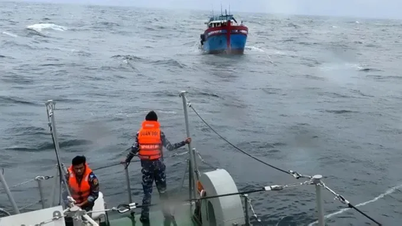




















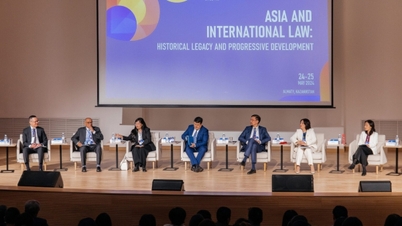
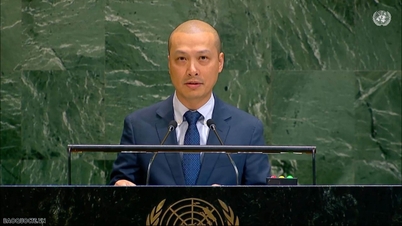
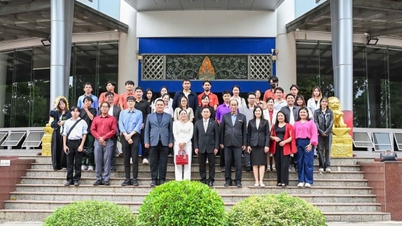

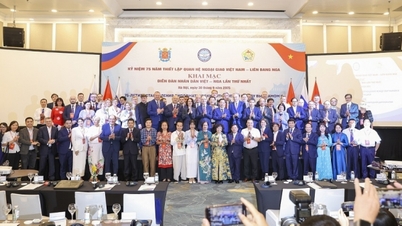
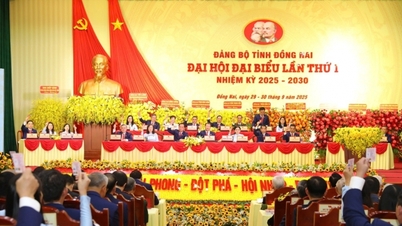




































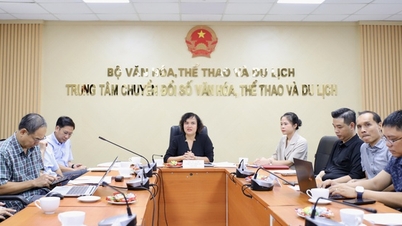
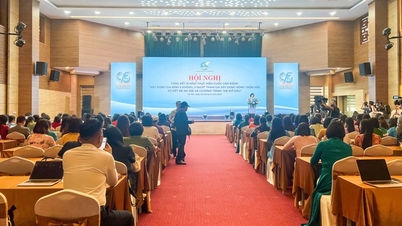
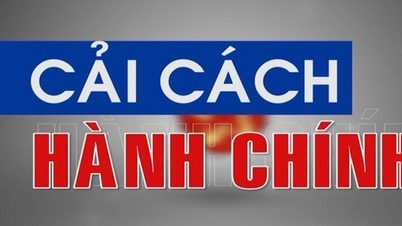





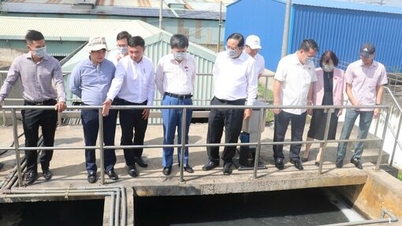



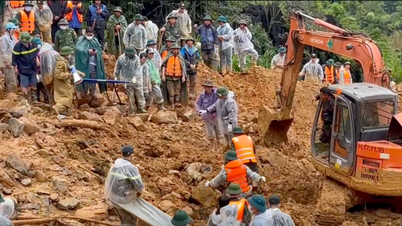

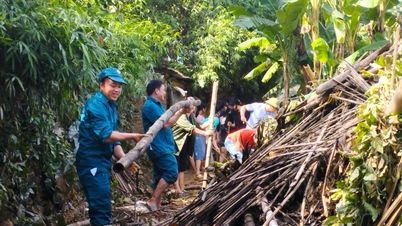

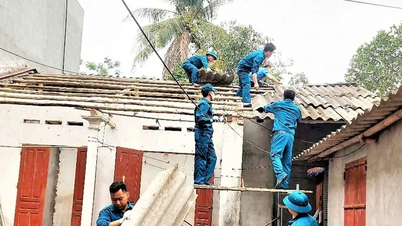














Comment (0)